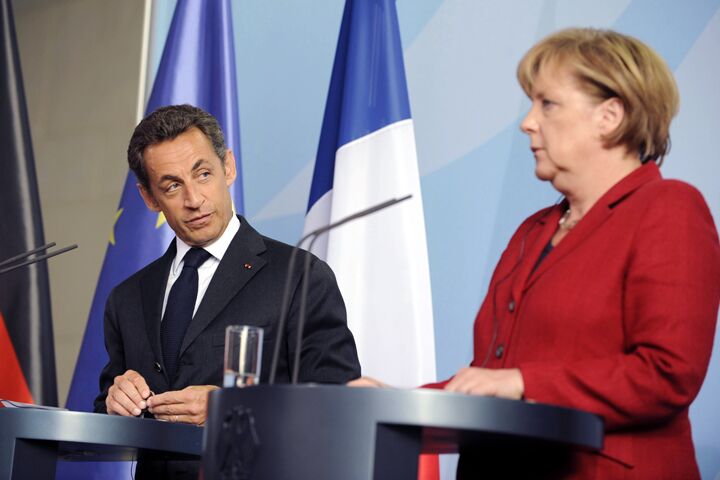
Germany and France Discussing New European Currency
The introduction of a two-tiered euro system is a big discussion topic among German and French cabinet officials, a senior European official told the Telegraph June 19.
The more stable northern countries, such as Germany, France, the Netherlands, Austria, Denmark and Finland, would form their own “super-euro” zone, in the ideas under discussion. The more indebted countries—Greece, Spain, Portugal, Italy and Ireland—would still keep the euro, but remain outside of the “super-euro” group.
“The philosophy is the stronger countries might need to move away from countries they can’t afford to bail out,” the official told the Telegraph. “As a way of containing the damage, they may have to do something dramatic, though obviously in the short term, implementation is difficult.
“It’s an act of desperation. They are not talking about ideal solutions but the lesser of evils. Helping Greece could be done relatively cheaply but Spain they can’t afford to let fail or bail out.
“And putting more pressure on the people of France and Germany to save other countries is politically unfeasible.”
One option is for Germany to lead the richer countries into a new single currency. The remaining countries would be able to deflate the euro, making their debts worth less and thus easier to repay. The northern countries would be unaffected by this, and would continue to enjoy a strong and stable currency.
French President Nicolas Sarkozy initially opposed the idea, but now sees it as a feasible way to solve the problem. France has lent Spain around £500 billion, and Germany had lent around £335 billion—yet that may not be enough to save Spain.
Sarkozy “would prefer to keep the euro in place, but if Spain, Italy and Greece are dragging him down he accepts he may have to cut them loose,” said the official. “They are trying to contain the contagious effect but they don’t have a solution yet.”
The two nations have until September to agree on a plan. Then Spain has to refinance $100 billion of its foreign debt. “If the markets don’t buy, that will trigger a response by Germany and France,” the official said.
The Trumpet has long forecast, based on Bible prophecy, that Europe would be dominated by a combination of 10 nations. Currently the eurozone is made up of 16.
Could this crisis be what whittles Europe down to 10 core nations? Perhaps. But as one EU senior negotiator said, “The eurozone debt crisis has a long way to run. No one knows where it is going to end up. Only one thing is sure, the eurozone will change.”
The Bible tells us that Europe will become a more unified group of 10 nations. This is where the trend is leading. Keep watching the euro crisis.
